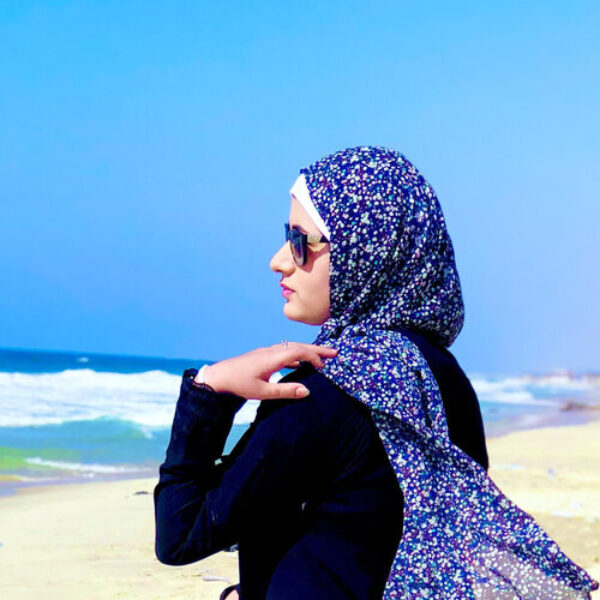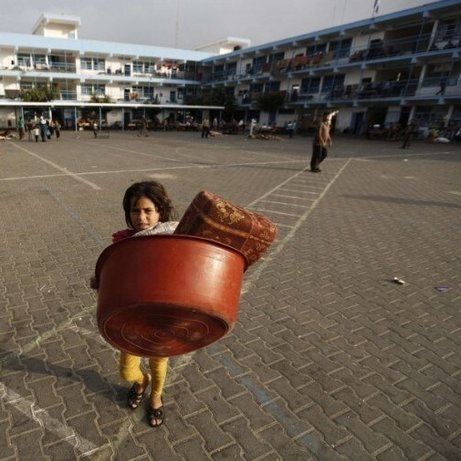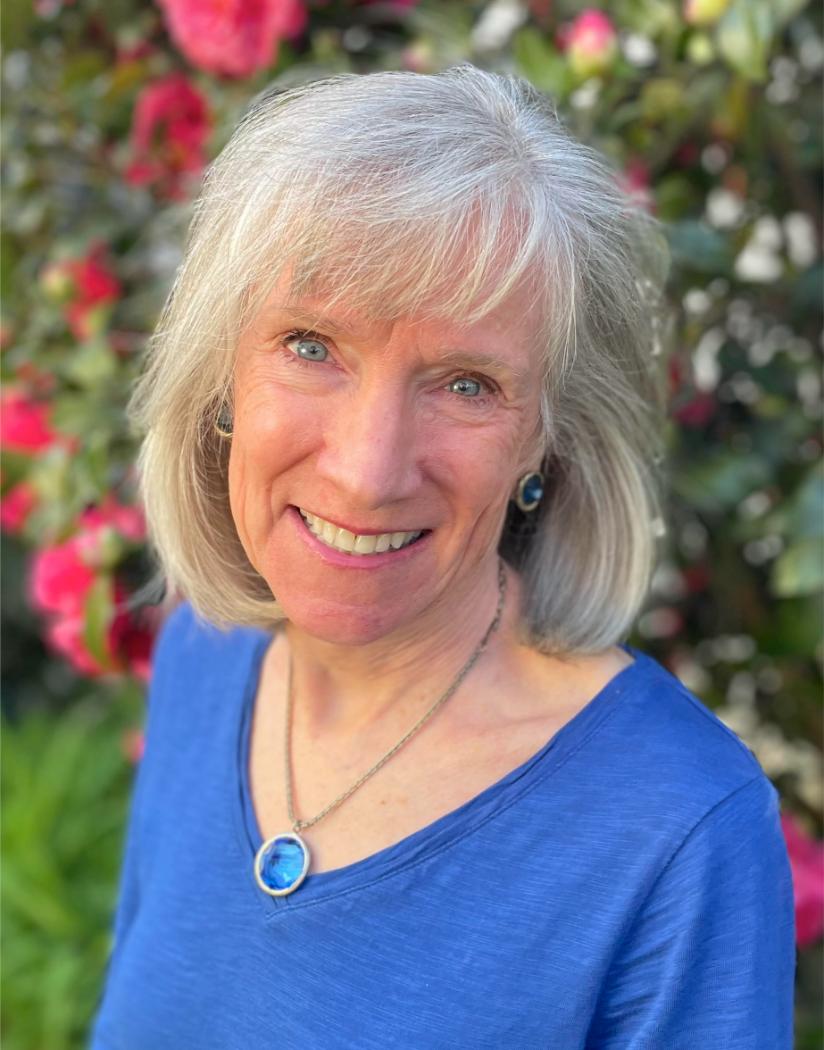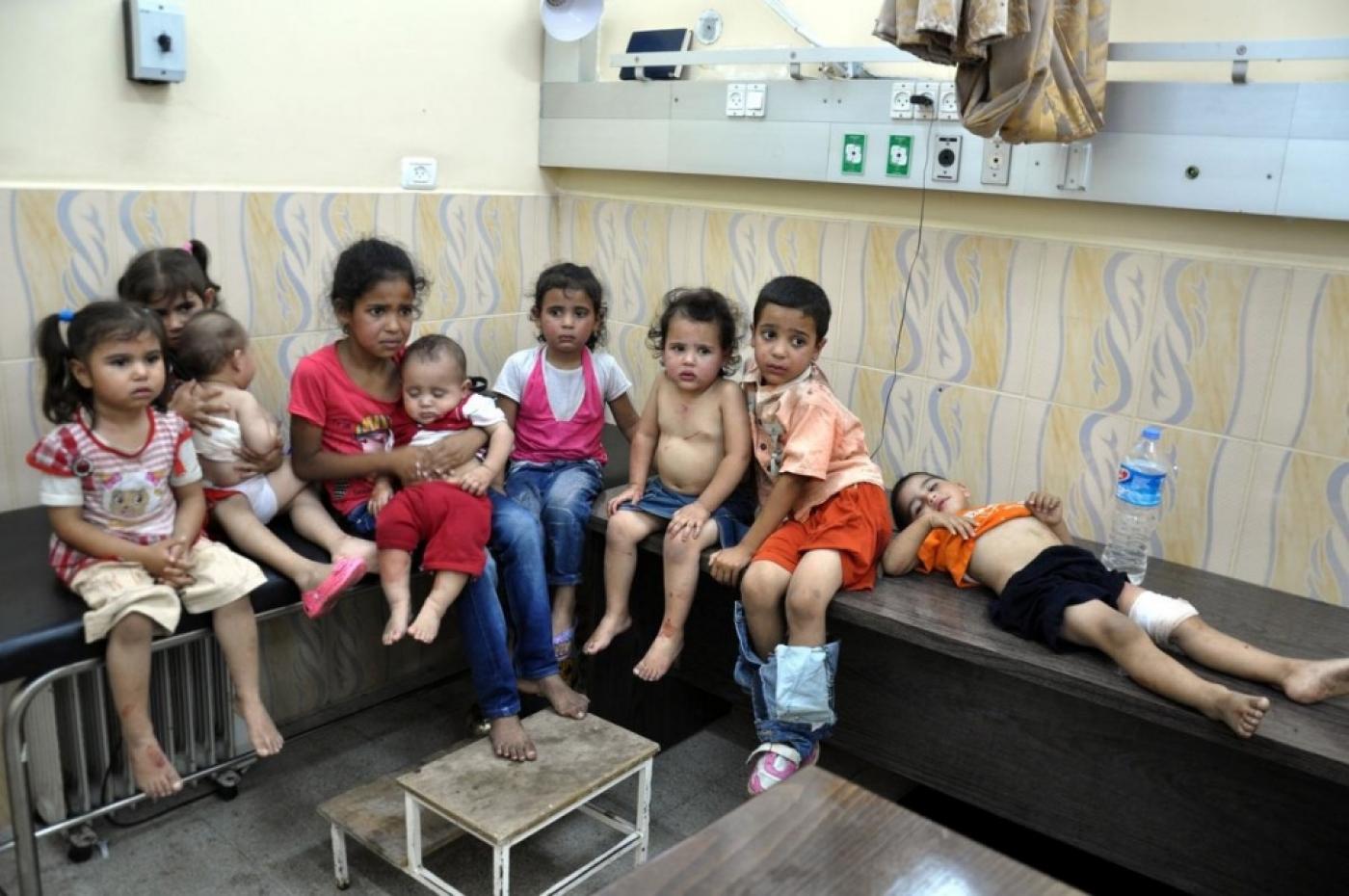
Between December 27, 2008, and January 18, 2009, Gaza was bombed continuously by Israel in its Operation Cast Lead. For people who live it, the memories do not fade with time.
January 6, 2009
I lie crammed side by side with hundreds of others on a classroom floor, but I am lonely inside my blanket. Stiff with cold, I wait for our destiny to arrive in a time as doubts fill the nooks and crannies of the room. Through the open window, a rough, deep voice calls to me. My heart races, hoping a loudspeaker might broadcast news of a ceasefire. But it was only the howling wind.
I try to absorb warmth from the blanket, but in vain. It’s too thin. I had gotten the blanket only after a scuffle with an UNRWA official. I had waited in a long queue full of sniffling people whose unwashed bodies and clothes radiated with a smell that would have been unbearable if I’d had anyplace else to go. I was so hungry and thirsty that I pushed to the front, uncharacteristically screaming and cursing at the staff. Finally, an official approached and silently handed me the blanket before disappearing into the fog of bickering and begging humanity waiting for handouts.
My heart constricts with longing to be in my own home. But our neighborhood is being targeted and the buildings that were our homes are experiencing the agony of bombardment. Beneath my hijab, my cheeks are wet with tears after a night of insomnia and wide-awake nightmares. It will require hundreds of shekels from our heard-earned savings to repair our windows when we eventually return. Their colorful frames, the creation of which was a quirk of my father and his brush, gave so much joy to me.
The schoolroom window, still open, taunts me with more blasts of cold air. The frost seems to creep onto my face and the stench of the mildew in the UNRWA-issue blanket suffocates me. Yet. My heart continues its nonstop race toward hope.
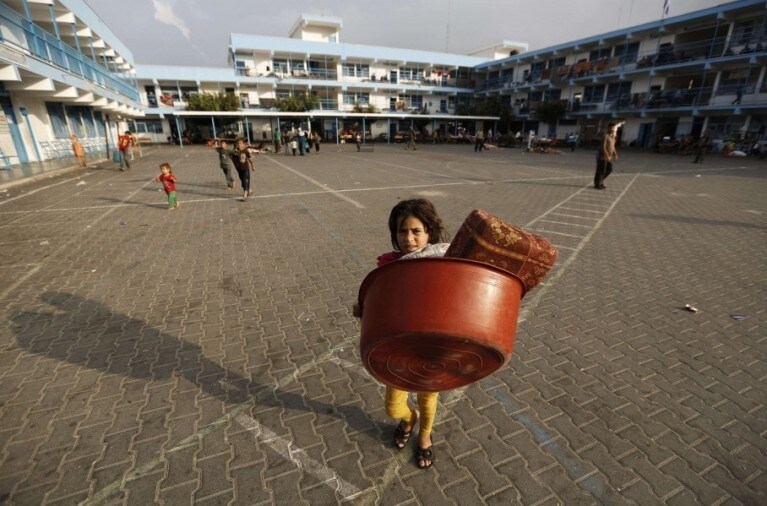
My thoughts turn to my mother. I am concerned about her. She has always borne most of the responsibility for watching over me and my brothers and sisters safe, while being overburdened by household chores. And when my father’s salary with the Ministry of Religious Affairs was cut to almost nothing, she was forced to rely on her salary as an elementary school teacher to pay our tuition fees. Sitting next to her now in this jammed room (the UNRWA schools-turned-shelters are segregated by sex, so my father is elsewhere), it’s obvious how much she yearns for solace and strength from her own siblings and extended family. Sadly, they are far away in Jordan.
Should we leave? But go where? Would our worries and tribulations just travel with us?
A shell ambushes a nearby building. I praise the Lord it didn’t hit our schoolroom. I pretend that I am strong, but I wonder, "How can I keep going?"
2 p.m.
The windows rattle.
The shells continue to rain down, and I wander through the hallways of the UNWRA school with my backpack, not wanting to risk losing my ID and other valuables. I console myself that each day is one day closer to the Day of Resurrection, when the aggression will end and those who are responsible for the wrongdoing against me and my people are held to account.
A painting, hung in one of the corners, emerges out of the gloom. It scattered buildings, with people reading on blankets, boys chasing dogs and a man with a red beard walking with the help of a stick. I recognize the place as the front yard of the camp where we live. But the calm and good cheer in the painting mock me, given the misery around me now—a reality in which Iraeli warplanes would target us if we dared lie around on blankets.
Suddenly, I see coming toward me, in the corridor, a man with a red beard. I imagine he is the man in the painting and relax with welcome. But as we draw closer, I notice that his beard is longer and more tangled looking than it is in the painting. He yells at me incoherently and waves his cane, accusing me of stealing the blanket.
January 7
Bombs are still falling on Gaza.
Tired of staying inside, I continue my wandering in the corridors of the school. Once again, I glimpse the man with the red beard, but now he doesn’t look like he would hurt anyone. Instead, he seems grieved and sad. I find the courage to sit with him and listen to his story. He lost all of his family in an air raid that targeted his house. I burst into tears and thank my Lord that my own family has survived.
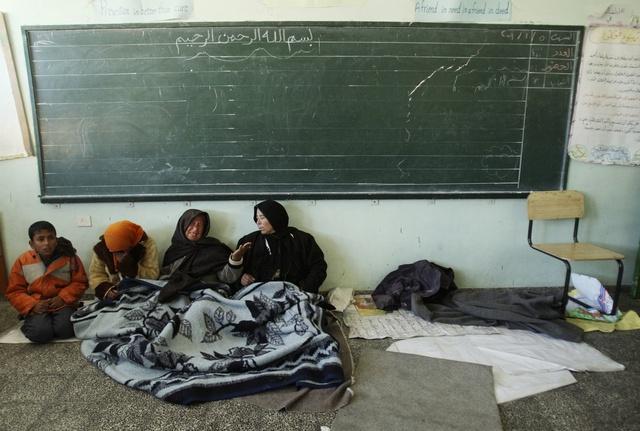
Fleeing the sadness, I escape into the basement, where we keep the small radio that a humanitarian aid coordinator lets us use, so we can keep updated on the news. I listen, hoping for word of a ceasefire. But suddenly my attention is yanked elsewhere. Three men with guns stormed down the stairs and, encountering me, we stare at each other. I am so terrified I forget to be silent and whisper aloud to myself, in English. "Why are you here"?
One of the men understands me. "We need a safe place to shelter for a bit," he replies.
I figured they were afraid to expose what they are doing, so I was quick to reassure them: “You're safe; I'm not going to reveal your secret."
They visibly relaxed; after thanking me, they introduced themselves: They are freedom fighters affiliated with Harakat-ul Jihad Islami (Islamic Jihad Movement), a Palestinian faction resisting the Israeli occupation.
For the first time in a while, I smile. I tell them we are comrades.
Our conversation is abruptly terminated when a bomb lands somewhere close by. An enormous dust cloud rises from the ground and pushes us up the stairs, where we all flee through the corridors in different directions. It’s as if the school is surrounded by gunmen shooting us with heavy fire, but we have no choice but to run toward the danger because inside, the school is imploding, and the stairs are crashing down.
We made it out and so did my family. But the building was flattened, and many other souls ascend to the Lord.
My family and I eventually returned home after surviving more, even fiercer, fighting. Weeks later, the political parties negotiated a truce with Israel. The memories I describe are based on journal notes I wrote after returning home.

